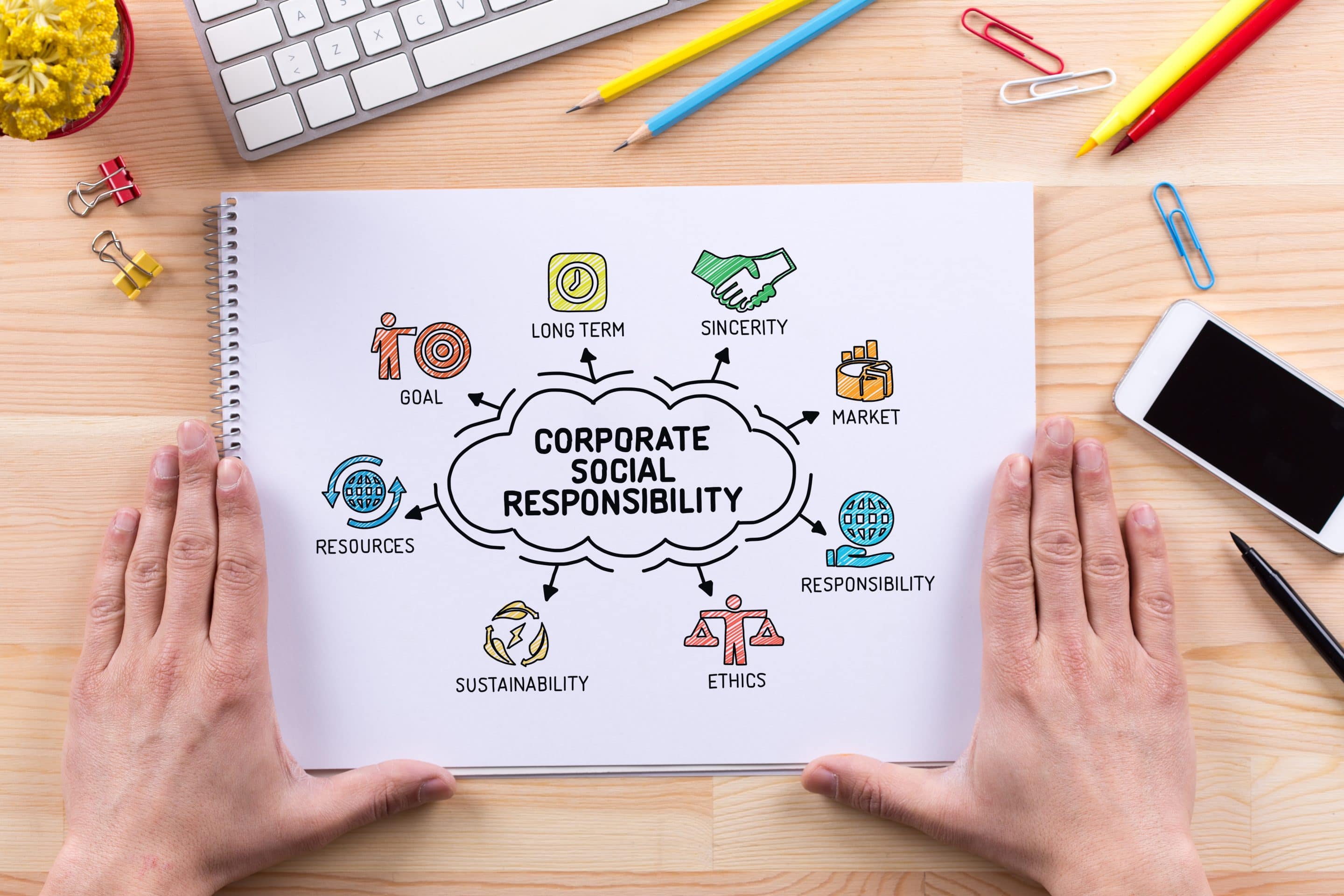The marketing trend is impossible to ignore, even for someone like me who cut the cable cord five years ago and isn’t looking back. Businesses of all sizes are getting off the sidelines, embracing their corporate social responsibility (CSR) and becoming active participants in some of the biggest social issues of our lifetime.
 The most recent example that comes to mind is Gillette’s viral ad targeting toxic masculinity and the #MeToo movement. Thirty years ago the company debuted their new marketing slogan, “The Best A Man Can Get,” in a Super Bowl commercial that earned more than one eye roll from me, viewing it for the first time this afternoon.
The most recent example that comes to mind is Gillette’s viral ad targeting toxic masculinity and the #MeToo movement. Thirty years ago the company debuted their new marketing slogan, “The Best A Man Can Get,” in a Super Bowl commercial that earned more than one eye roll from me, viewing it for the first time this afternoon.
Now their ad asks, “Is this the best a man can get?” over scenes of men stepping in to stop their peers from harassing women, and encouraging little boys to show kindness to each other instead of fighting and bullying. While I did still raise an eyebrow at parts (I really don’t need a man defending me against the idiots who suggest I “smile more”), I do appreciate the overall message and effort delivered by their marketing.
Similarly, I started using Dove products more frequently after their body positivity messaging took off in in the mid ‘00s with their Real Beauty campaign. The commercial with the sketches did exactly what they were hoping for and had me reaching for the tissue box.
The point is this: reason and emotion are the new currency in marketing, and those who don’t deliver are at risk of being left behind by employees and customers both.
Reflect Your Corporate Social Responsibility In Practice As Well As Marketing
In 2017, a study by Glassdoor found that 75% of workers age 18-34 expect employers to take a stand on important issues affecting the country and their constitutional rights. Data also suggests that companies who pay attention and take a stand on issues like immigration, equal rights and climate change may have an advantage when it comes to recruiting.
 Additionally, nearly four in five U.S. workers as a whole believe companies have an important voice in proposed legislation, regulation and executive orders that could affect the employer’s business or the lives of their employees.
Additionally, nearly four in five U.S. workers as a whole believe companies have an important voice in proposed legislation, regulation and executive orders that could affect the employer’s business or the lives of their employees.
“Today’s informed candidates want to work for companies that are actively engaged on topics that directly impact their lives and align with their beliefs,” said Dawn Lyon, Glassdoor C. “Today’s candidates, especially younger job seekers, want to work at companies that take a stand and take action.”
In 2018, Forbes contributor Thomas Bognanno co-chaired the 17th annual Charities@Work Employee Engagement Summit in New York City, leading candid discussions about racism, gender equality and immigration, and how companies should, and must, respond. Here are a few trends he identified that companies of all sizes should be watching.
Authenticity Is In
Companies can no longer be silent when it comes to social issues and many are setting up platforms for employees to share with each other, from employee-led business resource groups to all-staff gatherings and internal social media platforms.
Senior company leaders are also more likely to take a stand on issues directly by sharing personal messages through a letter or video to customers or employees. Companies understand that they are expected to act, and many businesses are taking the time to translate that into brand marketing and employee engagement.
Communication Is Key
To engage employees at work, leading businesses are building trust through transparency. Campbells, for example, is letting employees take over the company’s Instagram account to share purpose-inspired stories, and running crowdsourcing campaigns to uncover original marketing ideas and empower employees.
Employees will always be the foremost ambassadors for their company’s brand, and research shows that customers are much more likely to trust what an employee says versus an official company message.
Diversity Has Business Impact
America is growing increasingly more diverse and the trend isn’t slowing down any time soon. Leaders in corporate social responsibility are challenging their companies to lead by example through diversity and inclusion not just for a greater social impact, but for better business results and increased revenue.
Diversity and inclusion is an integral part of business, and an essential strategy for companies – some of which are finding new business opportunities through employee-led resource groups, marketing to new demographics and leveraging employee skills like language translation.
Volunteering Can Solve Business And Social Challenges
 Volunteering, especially skill-based, can tie directly to business goals. Employees can use their unique skills to solve problems, develop leaders and teams, reach new marketing demographics and build relationships.
Volunteering, especially skill-based, can tie directly to business goals. Employees can use their unique skills to solve problems, develop leaders and teams, reach new marketing demographics and build relationships.
For example, the hospitality industry is working to eliminate food waste, while food banks are trying to serve more clients. When company employees volunteer to deliver and sort food, as well as develop better processes to increase efficiency and distribution, everybody wins.
Customers Expect Businesses To Recognize Their CSR In Their Marketing
From buying products associated with a cause they care about to using their online presence for amplifying social and environmental messages, millennials especially are universally more engaged corporate social responsibility efforts. A study done in 2015 by Cone Communications interviewed 1,003 men and women for one of the most comprehensive looks at how millennials engage with CSR efforts in the U.S. Their most significant findings?
- More than nine in 10 millennials would switch brands to one associated with a cause (91% versus 85% U.S. average)
- Two-thirds of millennials (66% versus 53% U.S. average) use social media to engage with CSR
“This research reiterates the significant differences in how gender, life-stage and income level impact how millennials want to be engaged in CSR efforts,” says Lisa Manley, Executive Vice President, CSR Strategy, Cone Communications. “With different priorities and drivers, a ‘one-size-fits-all’ message won’t inspire mass action within this generation. To appeal to a diverse millennial audience, businesses need to understand the unique drivers and preferences of each segment to tailor their content, communications and channels for greatest impact.”
Millennials Will Take Action To Support CSR Marketing
 Millennials are more enthusiastic in their support of corporate social and environmental efforts, and are far more likely to participate in CSR initiatives if given the opportunity. Cone Communications millennial CSR study found that this group is more willing to:
Millennials are more enthusiastic in their support of corporate social and environmental efforts, and are far more likely to participate in CSR initiatives if given the opportunity. Cone Communications millennial CSR study found that this group is more willing to:
- Purchase a product with a social or environmental benefit (87% vs. 83% U.S. average)
- Tell friends and family about CSR marketing efforts (82% vs. 72% U.S. average)
- Voice opinions to a company about its CSR marketing efforts (70% vs. 60% U.S. average)
- Volunteer for a cause supported by a company they trust (74% vs. 56 % U.S. average)
They are also more willing to make personal sacrifices to make an impact on issues they care about whether that’s paying more for a product (70% vs. 66% U.S. average), sharing products rather than buying (66% vs. 56% U.S. average) or taking a pay cut to work for a responsible company (62% vs. 56% U.S. average).
Millennials Will Use Social Media To Amplify CSR Marketing For Impact
As digital natives, millennials treat social media as their megaphone for making an impact on issues they care about. They are far more likely to use social media to engage in a direct dialogue with companies or contribute to their CSR efforts. From the Cone Communications study:
- 38% share positive information about companies and issues they care about (vs. 30% U.S. average)
- 33% learn more about specific companies and issues (vs. 27% U.S. average)
- 26% share negative information about companies and issues they care about (vs. 21% U.S. average)
- 18% directly communicate with companies around issues (vs. 14% U.S. average)
- 17% contribute directly to an effort led by a company (vs. 12% U.S. average)
Reaching Millennials With CSR Marketing Communications
“The shift from traditional advertising to social media will be game-changing moving forward as companies try to break through to this always-on audience,” says Whitney Dailey, senior supervisor, CSR Planning and Insights, Cone Communications. “In a world where CSR content and messages must compete for attention against cat memes and trending hashtags, it’s more important than ever before to bring CSR information to life through compelling content, visual storytelling and interactive experiences.”
As much as millennials want companies to tell them how they are improving the world around them, it has to be done with the right content, and through the right channels. According to the report, millennials are more likely to use social media, but less likely to see advertising as effective. Mostly millennials want to be entertained and engaged by CSR marketing content, with a priority on videos and infographics when learning about a company’s CSR commitments.
Three Girls Media Can Help With Your CSR Marketing
Does your business have a mission statement? Are you committed to making real change and ready to share your mission with the world? Three Girls Media can help you craft your message and plan your campaign, from concept to delivery. Contact us today for free 3o-minute no obligation consultation with CEO Erika Taylor Montgomery and her team of publicists to get started.
Special Offer:
Sign up for a complimentary consultation during December and receive an Annual Marketing Planning Guide valued at $475! We offer a 30-minute phone consultation with our CEO, and can answer your questions and discuss your specific marketing needs - no strings attached. Call 408-218-2391 or contact us today to arrange your consultation!

